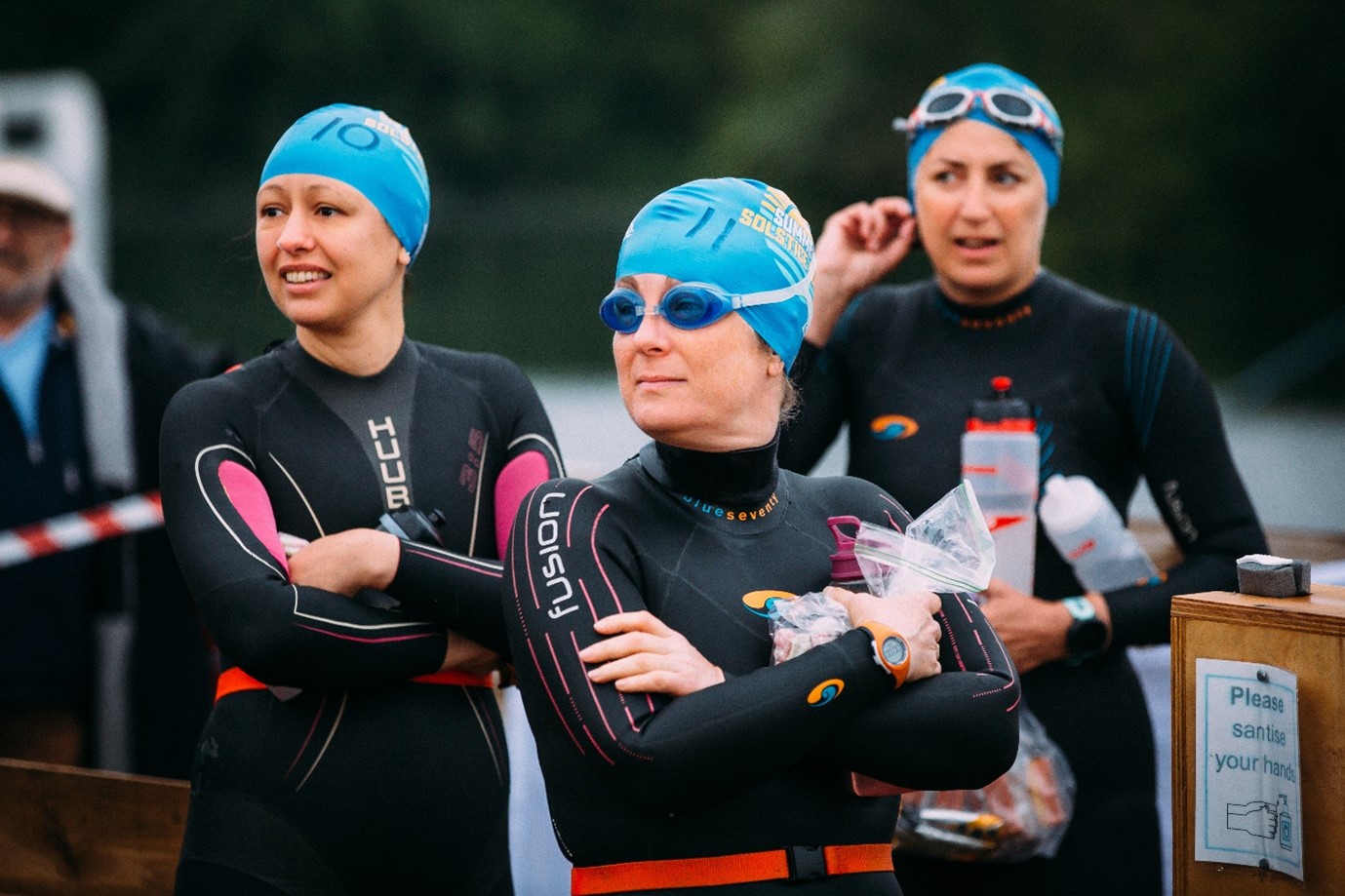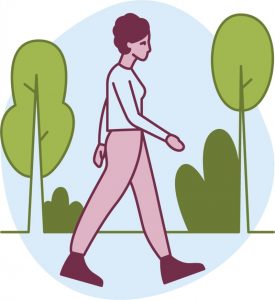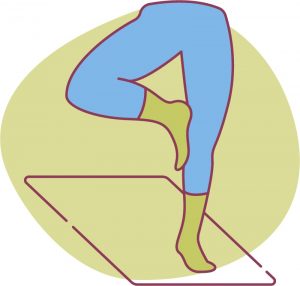Downloaded from www.mymenopausecentre.com
Direct URL: https://www.mymenopausecentre.com/blog/why-exercising-in-the-menopause-matters/
Why exercising in the menopause matters
Davina’s tummy, J-Lo’s bum – there are many incentives for joining the local park run or for trying out something new like open water swimming. But exercise is about so much more than just looking good – it’s essential for our physical, emotional and mental wellbeing and matters even more in the menopause. No-one knows this better than Mel Berry, Triathlon Coach and co-founder of the healthy living community, Her Spirit, which has helped thousands of women like us over the years. Here Mel and Jess Lambert-Harden, Fuel Coach at Her Spirit, share their expert insight on why it’s important to get our midlife bodies moving and some ideas to get started.

Anxiety, weight gain, exhaustion, lack of confidence, depression…..the list of menopausal symptoms goes on, and on, and on. But the good news is that you have the power to take back control – and exercising plays a massive part in this.
I know, you’ve heard it all before, but after many years of working with women going through the menopause, we’ve really seen the benefits from protecting joints and stopping weight gain to rebooting energy levels and lifting low moods (even though it sometimes feels like the last thing you want to do!).
The menopause weight gain minefield explained
You don’t need us to tell you that weight gain is one of the biggest concerns for menopausal women both from a health and confidence point of view, but we can’t just blame our hormones.
Generally speaking, as we age, we become less active. Work can be very sedentary, there are inordinate pressures on our time (parenting, looking after relatives, again work) which stop us exercising. And as we get older, we just generally move less (if you have a fidgety teen in your life, you’ll know what we mean!). It’s basic science: we move less, we gain weight.
In the fitness world, we call the amount of energy we burn each day our Total Daily Energy Expenditure (TDEE). The energy that we burn just by going about our daily life is called Non-Exercise Activity Thermogenesis (NEAT). For the average woman, this accounts for approximately 15% of our total energy expenditure as opposed to just 5% for planned exercise (or EAT – Exercise Activity Thermogenesis). That’s why it’s so important to move, move, move as much as possible.
But it’s not just the demands of life coming between us and exercise: fatigue, stress, anxiety, and achy joints and other common menopausal symptoms can also make exercise cumbersome and demotivate us (who wants to pull themselves out from under the duvet on a cold, dark morning when you know it’s going to hurt?). Add the same diet that you’ve been eating since you were in your twenties into the mix and it’s hardly surprising that the arrow on the scales isn’t where it used to be.
While lifestyle changes have a lot to do with weight gain, there are of course those pesky hormonal changes to deal with too. The decrease in oestrogen that a woman going through the menopause experiences means that more fat is stored around the midsection, and less around the thighs and bottom.
Gaining weight around the middle is enough to make any of us feel insecure, self-conscious and disillusioned, especially when it feels as if it just won’t shift.
Some people make their peace with it, accepting that a little extra around that area is likely to happen. However, too much abdominal fat can cause health issues such as type 2 diabetes and heart disease. If your body mass index (BMI) is raised, particularly over 30, there is evidence to suggest that your hot flushes may be worse. The answer? We need to move more….
How to win at working out
1. Get your steps in
 The easiest way to charge up our sedentary lives is to move whenever we can. Using the car less, walking upstairs instead of using the lift, getting off the bus one stop earlier or getting up from your desk every 30 minutes are practical ways of doing this – you’ve heard it before but that’s because it works! NEAT activities also include housework, gardening, or you could even try using a standing desk.
The easiest way to charge up our sedentary lives is to move whenever we can. Using the car less, walking upstairs instead of using the lift, getting off the bus one stop earlier or getting up from your desk every 30 minutes are practical ways of doing this – you’ve heard it before but that’s because it works! NEAT activities also include housework, gardening, or you could even try using a standing desk.
2. Be a weightlifting wonder
As we age, our muscle mass decreases and this has a small effect on our base metabolic rate (BMR). Strength training at least twice a week will help to counteract this (at Her Spirit we run several classes every week). Training our muscles also helps strengthen and protect our bones reducing the risk of osteoporosis. So, dust down those dumb-bells and go for it!
3. Get your heart rate up
Sadly, looking at photos of Idris Elba isn’t going to cut it – we’re talking about regular exercise, either 150 minutes of moderate aerobic activity a week or 75 minutes if you’re really going for it. Think walking, running, cycling, swimming, dancing, high-intensity interval training (HIIT) or anything that gets your heart pounding.
Find your fitness mojo
It’s not rocket science: take up an activity you enjoy and you’re more likely to do it. Also, don’t put unnecessary pressure on yourself – accept where you are today and build from there. A 10-minute walk around the park is brilliant. 1 percent better each day is a useful reminder.
If you struggle with motivation, set some goals for yourself, and share with your friends or team up with others for accountability and encouragement – research shows we’re more likely to stick to goals if we’ve told others about them.

Some people feel too self-conscious to exercise in public. If that’s you, remember you don’t have to go to an actual gym or hit the park. There are so many online alternatives such as our Her Spirit class schedule where you can do everything from strength training, pilates, yoga, indoor cycling, HIIT and more from the comfort of your own home. Many of our members have started their fitness journey in their living rooms and have gone on to enjoy training by themselves and even taking part in events such as triathlons!
Alternatively, look out for women-only local coaching sessions for everything from swimming to running. Open water swimming has become particularly popular with menopausal women, even more so during covid, with many enjoying the mental health benefits and the body confidence it has given them.
Show your symptoms who’s boss
Some of the symptoms of the menopause can become barriers to exercise but there are steps you can take to break this vicious cycle.
Firstly, know and understand your symptoms. Keep a symptom diary, identifying any changes to your body such as feelings of exhaustion or joint pain that are stopping you exercising. My Menopause Centre has a specially designed questionnaire that you can complete that will tell you whether and where you are in the menopause transition, as well as provide you with advice on your symptoms. Take it on a regular basis to keep track of your symptoms.
Once you have your symptom diary or completed menopause questionnaire, you can share it with your doctor who can provide you with medical advice, in particular whether HRT (Hormone Replacement Therapy) is a good option for you (it can work wonders on fatigue and joint pain for example).
Emotional symptoms such as feeling self-conscious and low about your body image, particularly if it’s because of weight gain during the menopause, are incredibly common and can also put your off exercising. Likewise, hot flushes, loss of bladder control or pain through the pelvic region aren’t going to have you reaching for the lycra.
But don’t be defeated! Joining communities of other women who are going through the same is a powerful way to realise you are not alone. (Many of the women in my exercise classes carry cold packs for when the hot flushes arrive unexpectedly during a training session!). Remember, exercise helps to boost mood, promote sleep, and improve self-esteem: strong body, strong mind.
Mind over matter
Other midlife symptoms that can stop women from exercising are those relating to mental health, in particular menopause stress, anxiety and depression. These can be caused by erratic hormone fluctuations and, without treatment these symptoms can get worse, motivation levels to exercise are almost non-existent and a woman’s self-esteem can plummet. For this reason, it is wise to seek help from a knowledgeable GP or menopause specialist. Often women are wrongly prescribed antidepressants to treat these symptoms and HRT may be a more effective option.
While exercise can be a brilliant way to manage mental health issues, you shouldn’t rely on it solely (excessive exercise is also a stressor on the body). Make sure you also factor in rest and relaxation, be it yoga, meditation, other hobbies, and spending time with others. Talking therapies such as cognitive behavioural therapy (CBT) may also help.
Learning to enjoy exercise is great for the body and mind, and your social life, and with many years left of life, let’s make them fitter, stronger, and healthier.
You can find out more about Her Spirit here.
Join the pause. community
We’ve created pause. as a space for women to come together and share stories about their menopause experience, ask questions, and to find support and inspiration. We'll also share the latest news and updates on the menopause from our experts.
Want to be the first to hear our latest news? Join our pause. community today.
Share your email to receive the latest news, updates and information on new products and treatments from My Menopause Centre and our pause. community. You can unsubscribe at any time.
We're committed to protecting and respecting your privacy - see our Privacy Policy and Terms and Conditions

Book a consultation
Whether you want to discuss your symptoms, create a treatment plan that's right for you, understand some test results or have a check-up, the highly experienced doctors and nurses in our menopause clinic are here to help you.
Book nowContact My Menopause Centre
- General enquiries: hello@mymenopausecentre.com
- Book appointments online: Log into your account and go to 'My appointments'
- Book appointments by phone: 0333 444 1067
- Website: https://www.mymenopausecentre.com



















We’d love to hear from you
Please ensure you’re logged in to leave a comment. Not got an account – registration is quick and easy! All comments are moderated prior to being posted on the website and are subject to our Acceptable Use Policy.
Comments